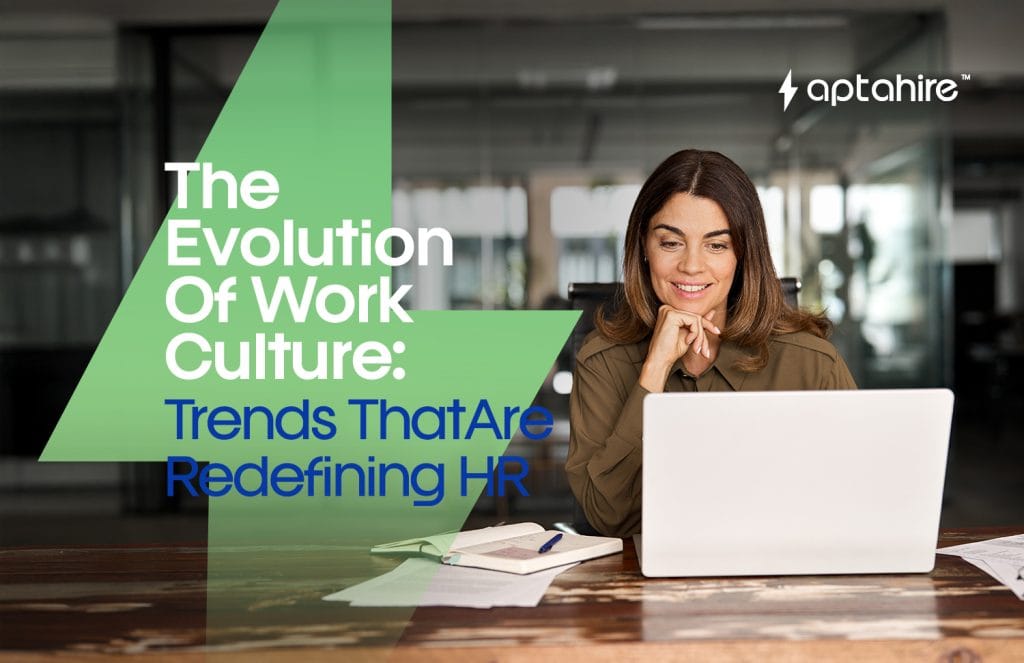The Evolution of Work Culture: Trends That Are Redefining HR

Introduction
The world of HR is evolving faster than ever, and 2025 is shaping up to be a game-changer. With AI-driven automation, a greater focus on employee well-being, and an ever-changing workforce landscape, HR professionals need to stay ahead of the curve. Organizations are prioritizing personalized employee experiences, rethinking performance management, and embracing flexible work models.
If you’re in HR, you know the challenge: How do you balance technology with the human touch? How do you attract, engage, and retain top talent in a world that’s constantly shifting? In this blog, we’ll break down the biggest HR trends of 2025, backed by research and insights, to help you navigate this dynamic landscape.
Let’s dive in!
1. Embracing AI in HR Processes
Artificial Intelligence (AI) is revolutionizing HR operations. It’s projected that AI will automate around 50% of workplace activities across all industries by 2025.
This integration enhances efficiency in tasks like recruitment and employee support. However, it’s crucial to address potential biases in AI systems to ensure fairness and transparency.
2. Prioritizing Employee Engagement
Organizations that offer highly personalized employee experiences see a 30% increase in employee engagement and a 20% boost in overall productivity.
Tailoring experiences to individual needs fosters a more committed and efficient workforce.
3. Addressing Labor Shortages and Skills Gaps
Labor shortages and skills mismatches are pressing concerns. The Society for Human Resource Management (SHRM) emphasizes the importance of tapping into underutilized talent pools, including veterans and individuals with disabilities, to bridge these gaps.
4. Adapting to Flexible Work Culture
The debate over returning to traditional office settings is ongoing. A survey revealed that 57% of Australian employers are less likely to hire candidates unwilling to work onsite five days a week.
This highlights the need for organizations to balance flexibility with operational requirements.
5. Fostering Diversity, Equity, and Inclusion (DEI)
DEI initiatives are gaining momentum. Organizations with effective DEI programs are 4.2 times more likely to exceed performance expectations.
This underscores the importance of creating inclusive environments where all employees can thrive.
6. Leveraging People Analytics
Data-driven decision-making is becoming integral to HR strategies. Organizations using people analytics effectively are 4.2 times more likely to exceed performance expectations.
This analytical approach enhances the precision and impact of HR initiatives.
7. Enhancing Employee Well-being
Comprehensive well-being programs are becoming the norm, with leading companies planning to increase spending on their wellness initiatives over the next year.
This shift recognizes the critical link between employee well-being, engagement, and performance.
8. Navigating Political and Regulatory Changes
The evolving political landscape introduces new regulations that impact workplace dynamics. HR professionals must stay informed and agile, adapting policies to ensure compliance while maintaining a positive work environment.
9. Redefining Performance Management
Companies are reevaluating performance review processes to enhance efficiency. For instance, Microsoft is considering changes to better manage underperformers amid rising competition in AI.
This reflects a broader trend of optimizing operations to meet evolving business needs.
10. Preparing for Future Disruptions
The rapid pace of change necessitates that organizations cultivate a culture of continuous learning and adaptability. Investing in upskilling, fostering innovation, and encouraging agility equips organizations to thrive amidst future disruptions.
Final Thoughts
The future of HR isn’t just about technology or policies, it’s about people. As AI becomes more integrated into HR processes, it’s crucial to ensure fairness, inclusion, and a strong human connection. Companies that invest in employee engagement, well-being, and diversity will thrive in this new era.
By staying agile, embracing data-driven decision-making, and fostering a culture of continuous learning, HR professionals can transform workplaces into thriving ecosystems where employees feel valued and motivated. 2025 is not just another year, it’s a pivotal moment to redefine the way we work.
FAQs
1. How is AI impacting HR in 2025?
AI is automating tasks like recruitment, employee support, and performance management. Around 50% of workplace activities are expected to be automated across industries, allowing HR professionals to focus on strategy and employee engagement.
2. What is the biggest challenge for HR in 2025?
One of the biggest challenges is addressing labor shortages and skill gaps. Organizations must focus on upskilling employees, leveraging underutilized talent pools, and embracing AI to bridge these gaps.
3. How important is employee well-being in 2025?
Extremely important! Companies with strong wellness programs see higher engagement and productivity. Many organizations are increasing investments in mental health and holistic well-being to retain top talent.
4. Is remote work still a trend, or are companies shifting back to offices?
Hybrid work models remain popular, but some companies are pushing for full-time office returns. In Australia, 57% of employers are hesitant to hire candidates who refuse to work onsite five days a week. The key is finding a balance that benefits both employers and employees.
5. What role does DEI (Diversity, Equity, and Inclusion) play in HR trends?
DEI is more important than ever. Companies with effective DEI initiatives are 4.2 times more likely to exceed performance expectations. Creating an inclusive workplace fosters innovation, collaboration, and long-term success.
